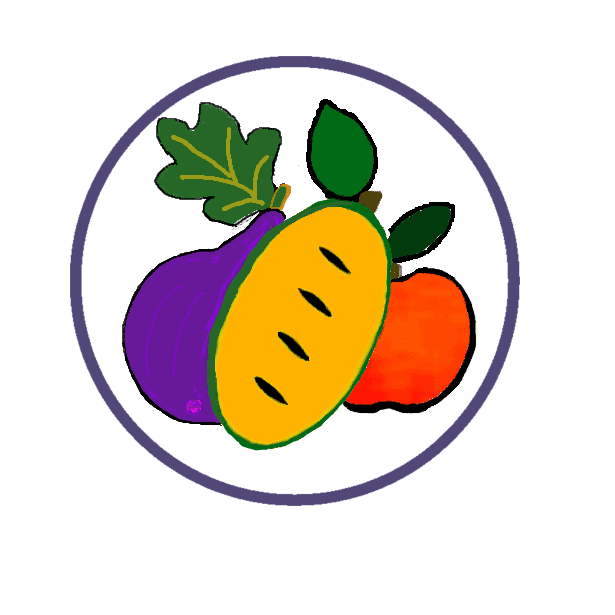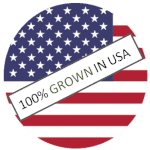Naturally Grown Elderberry Plants For Sale
Elderberry has a long history of Old World and New World uses. It has become famous as a source of potent immune-boosting properties and the berries are processed into herbal medicines which can be found in modern drugstores processed and sold under the name “Sambucol”. The berries have been rigorously tested in scientific research trials in Israel and been proven to lessen the symptoms and duration of colds and flu.
Unlike other unscrupulous nurseries, we will never dishonestly mislead you to sell more plants and thus make false claims that elderberries are tasty or delicious to eat. They’re actually not, whatsoever! However, they make excellent preserves, pies, wines and herbal medicine products. They’re an excellent and productive processing fruit, bee plant, native hedge and striking ornamental with 18-24 inch wide flower clusters that are just too lovely. Also an excellent niche plant for wet and mucky areas where very little else would prosper. They fit in well where most plants fail, and are beautiful and very useful. Super fast to establish and extremely easy to grow!
Remember, you need 2 different varieties for fruit production!
All of our elderberry varieties are hardy, high-yielding of excellent berries and are tried and true. More than one elderberry cultivar is needed for proper pollination and full fruit set.
On Growing Elderberries
You need 2 different varieties for cross pollination. Site selection should be very sunny but elderberries are flexible and adaptable to soil type. Loamy soil is best, but they can actually handle “wet feet” or wet, soggy soil exceedingly well, which is VERY rare for fruit bushes. In fact, they do it better than any other fruit we sell.
The plants grow to a shrub size of 10-14 ft tall and wide. Pruning to 4-6 ft keeps them very bushy and easy to harvest. In early summer huge 2-3 ft wide sprays of delicate, intricate and highly ornamental and lightly fragrant flower clusters appear, drawing pollinators and bees. The berries mature and ripen starting around August and can be easily harvested by breaking off an entire black cluster at a time. They make extraordinary wine, jelly and pies as well as herbal medicines. They make a wonderful deciduous privacy screen and hedge and fit well into permaculture systems, adding diversity and useful purpose to forest edges, young orchards and roadsides. Good bee plant. Currently becoming a commercial niche crop for growers in Missouri for the health-food market.
Showing all 6 results
-
Sale!
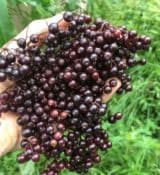
Bob Gordon Elderberry – NATURALLY GROWN
$29.99 – $99.99 -
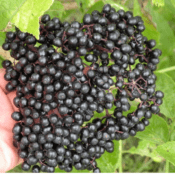
Elderberry Cuttings – NATURALLY GROWN
$29.99 – $39.99 -
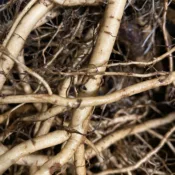
Elderberry Roots – NEW! NATURALLY GROWN
$24.99 – $37.99 -
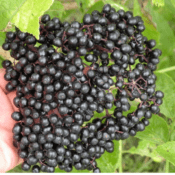 SOLD OUT
SOLD OUTMarge Elderberry – NATURALLY GROWN
$34.99 – $99.99 -
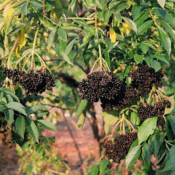 SOLD OUT
SOLD OUTRanch Elderberry – NATURALLY GROWN
$29.99 – $99.99 -
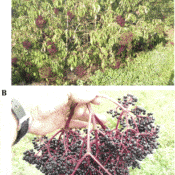 SOLD OUT
SOLD OUTWyldewood Elderberry – NATURALLY GROWN
$34.99 – $99.99
